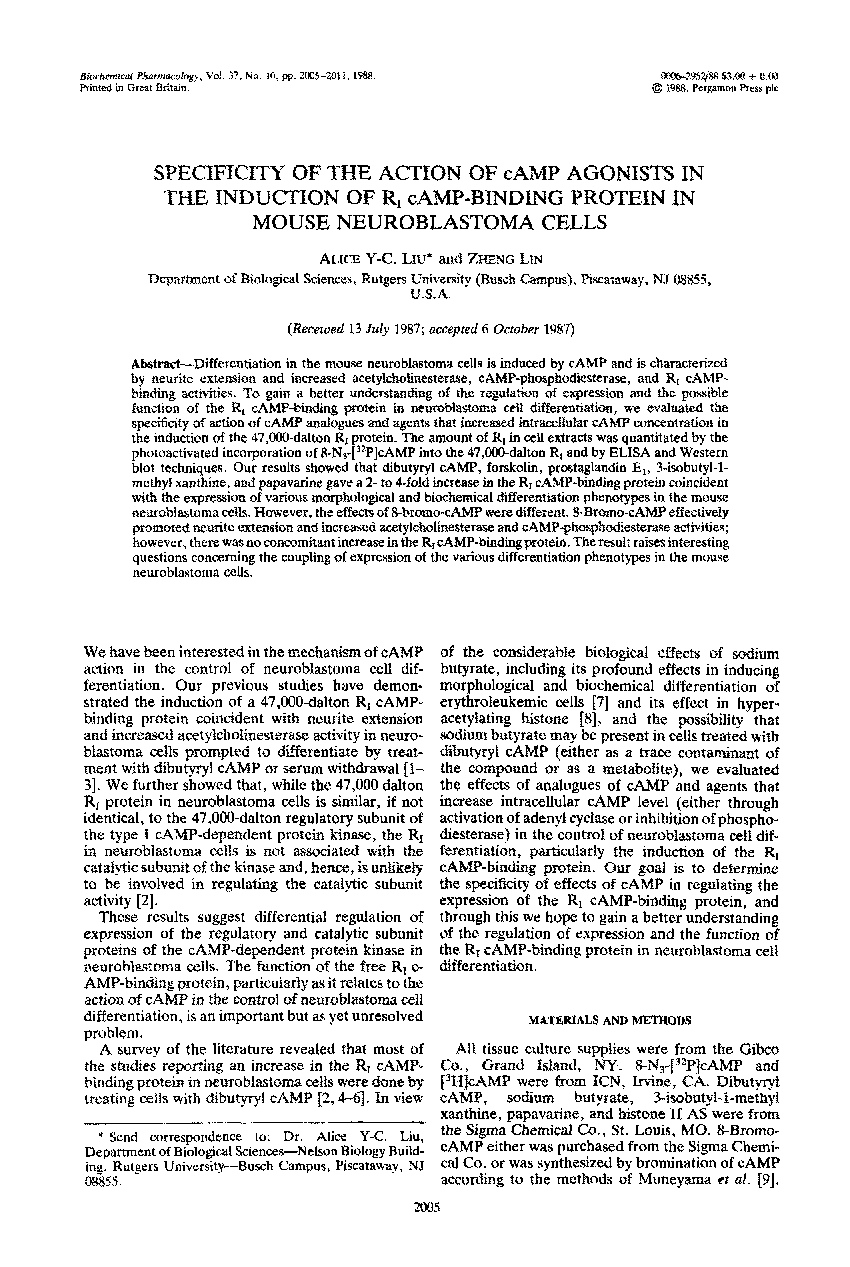| Article ID | Journal | Published Year | Pages | File Type |
|---|---|---|---|---|
| 2518136 | Biochemical Pharmacology | 2011 | 7 Pages |
Differentiation in the mouse neuroblastoma cells is induced by cAMP and is characterized by neurite extension and increased acetylcholinesterase, cAMP-phosphodiesterase, and ri cAMP-binding activities. To gain a better understanding of the regulation of expression and the possible function of the RI cAMP-binding protein in neuroblastoma cell differentiation, we evaluated the specificity of action of cAMP analogues and agents that increased intracellular cAMP concentration in the induction of the 47,000-dalton RI protein. The amount of RI in cell extracts was quantitated by the photoactivated incorporation of 8-N3-[32P]cAMP into the 47,000-dalton rI and by ELISA and Western blot techniques. Our results showed that dibutyryl cAMP, forskolin, prostaglandin E1, 3-isobutyl-1-methyl xanthine, and papavarine gave a 2- to 4-fold increase in the rI cAMP-binding protein coincident with the expression of various morphological and biochemical differentiation phenotypes in the mouse neuroblastoma cells. However, the effects of 8-bromo-cAMP were different. 8-Bromo-cAMP effectively promoted neurite extension and increased acetylcholinesterase and cAMP-phosphodiesterase activities; however, there was no concomitant increase in the RI cAMP-binding protein. The result raises interesting questions concerning the coupling of expression of the various differentiation phenotypes in the mouse neuroblastoma cells.
